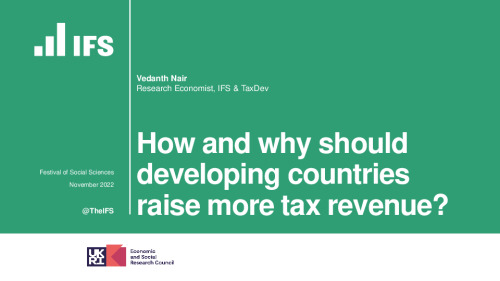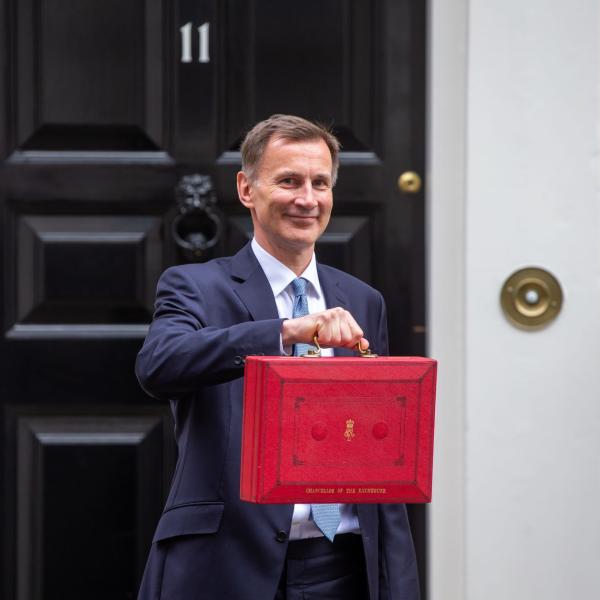
This event looked at the challenges that governments in developing countries face when trying to raise taxes.
Downloads

Download Vedanth Nair's presentation
PDF | 739.01 KB
Governments in many developing countries urgently need to raise funds to invest in education, health and infrastructure. However, they tend to raise far less as a fraction of their GDP in tax revenue than high income countries. Why is this, and what can be done about it?
In this online talk and Q&A, we discussed why and how taxes need to be designed differently in developing countries faced with high levels of evasion and low state capacity.
This event is part of the ESRC Festival of Social Science

Authors

Research Economist
Vedanth is in the TaxDev sector. His research is on taxes in developing countries, with a particular focus on VAT.
Presentation details
- Publisher
- Institute for Fiscal Studies
Suggested citation
Nair, V. (2022). 'Why and how should developing countries raise more taxes?' [Presentation]. London: Institute for Fiscal Studies. Available at: https://ifs.org.uk/publications/why-and-how-should-developing-countries-raise-more-taxes (accessed: 3 May 2024).
More from IFS
Understand this issue

Where next for the state pension?
13 December 2023

Social mobility and wealth
12 December 2023

Autumn Statement 2023: IFS analysis
23 November 2023
Policy analysis

Recent trends in and the outlook for health-related benefits
19 April 2024

Progression of nurses within the NHS
12 April 2024

Regional variation in earnings and the retention of NHS staff in Agenda for Change bands 1 to 4
10 April 2024
Academic research

Police infrastructure, police performance, and crime: Evidence from austerity cuts
24 April 2024

Imagine your life at 25: Gender conformity and later-life outcomes
24 April 2024

A senior doctor like me: Gender match and occupational choice
24 April 2024